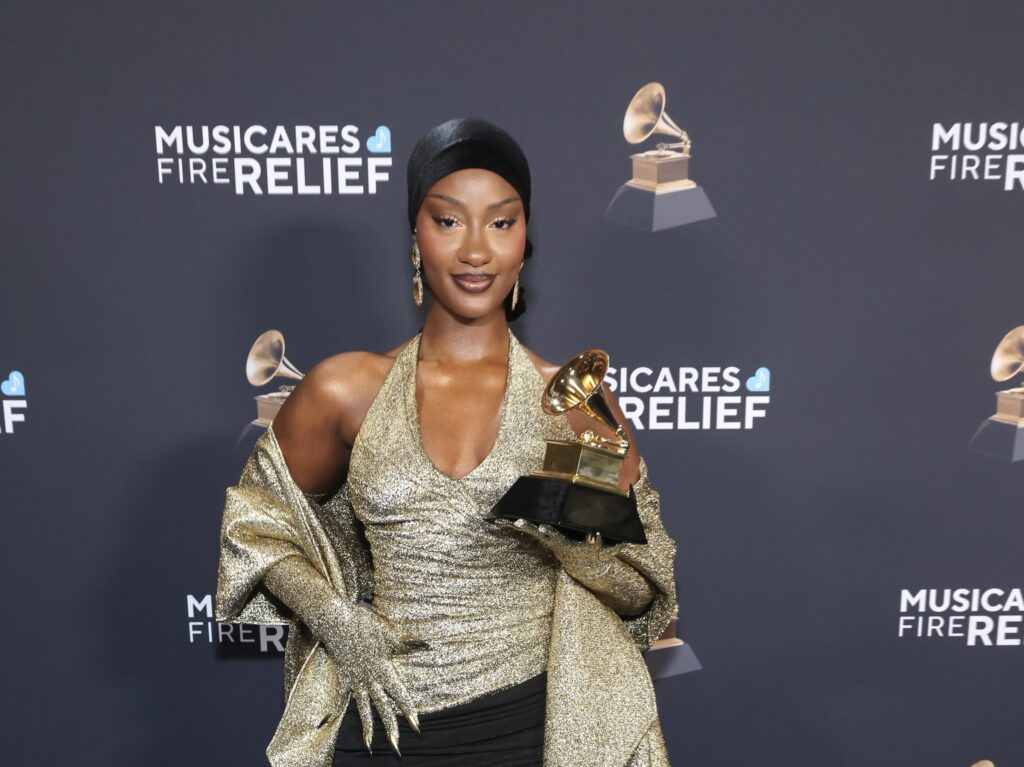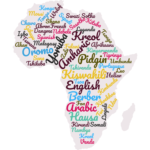Black history is not merely a reflection of the past; it underpins much of global pop culture. From the rhythms of music that resonate across continents to the fashion trends that define generations, Black creativity has continuously shaped cultural landscapes.
The significance of Black history extends beyond representation; it underscores the profound impact of Black artists, musicians, athletes, and storytellers in shaping what the world consumes and celebrates today.
For decades, Africa’s creative scene was overshadowed by Western media, with narratives often imposed rather than self-defined. Yet, as global audiences increasingly embrace African artistry, the influence of Black history in shaping pop culture has never been clearer.
Across the continent, artists, filmmakers, athletes, and designers are reclaiming the narrative, demonstrating that African creativity is not a passing trend but a permanent fixture on the global stage.
The Pulse of a Continent
Music has long been central to African culture, serving both as entertainment and a medium for social commentary. The griots of West Africa, ancient storytellers and musicians, laid the foundation for contemporary African music, using song to preserve history.
This tradition endures today through artists such as the late Fela Kuti, whose Afrobeat movement in the 1970s became a rallying cry against military oppression in Nigeria. His influence is evident in modern Afrobeats, a genre now dominating the global stage, with artists such as Burna Boy, Wizkid and Tems continuing the legacy of blending music with political consciousness.
Beyond Nigeria, other African music genres have left a lasting mark on pop culture. South Africa’s kwaito music, born in the townships during apartheid’s final years, became a voice for the youth, expressing both struggle and celebration.
Today, amapiano, a deep-house subgenre originating in South Africa, has taken over dance floors worldwide, proving that African sounds are no longer just local but global.
Ghanaian highlife, Congolese soukous, and Tanzanian Bongo Flava have also influenced generations of musicians, evolving into new styles while remaining deeply rooted in African identity.
The emergence of hip-hop in the 1970s marked a new era of cultural influence, extending beyond music into language, fashion, and politics. What began as an underground movement evolved into a multibillion-dollar industry, reinforcing the role of Black history in shaping the global entertainment landscape.
African artists, blending traditional rhythms with hip-hop and R&B influences, created distinct sounds that now dominate the airwaves. Afro-trap in Francophone Africa, Gengetone in Kenya, and Naija pop all serve as reminders that African music is no longer following trends—it is setting them.
Rewriting the African Narrative
African cinema has played a crucial role in shaping narratives and challenging stereotypes. At a time when Hollywood often misrepresented Africa as a land of suffering and struggle, Nollywood was quietly rewriting the script.
Nigeria’s film industry, now the second-largest in the world, produces over 2,000 films annually, telling stories that resonate with everyday Africans. The industry’s success is rooted in its relatability, capturing love, family, politics, and urban survival in ways that Western media often ignores.
Unlike its Western counterpart, Nollywood ensures that African voices tell African stories. Filmmakers such as Kunle Afolayan and Genevieve Nnaji have taken these stories beyond the continent, challenging global audiences to see Africa beyond poverty and conflict. Streaming platforms have taken notice.
Netflix, Showmax and Amazon Prime are now investing heavily in African content, realising that the demand for authentic storytelling extends beyond African audiences. The global success of series such as Queen Sono and Blood & Water proves that African cinema is not just growing—it is leading.
Beyond entertainment, Black culture has been the driving force behind global fashion trends. The streets of Dakar, Nairobi, and Abidjan reflect a fusion of tradition and modernity.
Young Africans are redefining style, embracing heritage fabrics such as kente, Ankara, and kitenge while styling them with a contemporary twist. This is not just fashion; it is identity.
Designers such as Rich Mnisi (South Africa), Lisa Folawiyo (Nigeria), and Thebe Magugu (South Africa) are taking African fashion global, blending traditional craftsmanship with high-fashion sensibilities.
Meanwhile, streetwear culture, heavily influenced by hip-hop and urban life, is making waves from Lagos to Johannesburg, with brands such as WafflesNCream leading the charge. Over time, luxury fashion took note, and Black designers and models began to break barriers.
The digital age has further amplified African pop culture, giving artists, filmmakers, designers, and athletes a direct platform to connect with audiences worldwide. The internet has accelerated Africa’s influence, allowing young creatives to bypass traditional gatekeepers.
Platforms such as TikTok, YouTube, and Instagram have amplified African voices, enabling a dancer in Ghana or a comedian in Uganda to go viral overnight. Social media has become a powerful tool for African creators to showcase their work without relying on Western validation.
Movements such as #BlackIsKing and #AfricaToTheWorld highlight how Africans are reclaiming their narratives and shaping their own global image.
As pop culture evolves, one truth remains: Africa is not merely participating—it is leading. Whether through music, film, fashion, or sports, African creativity continues to shape global culture in profound ways. The world is watching, listening, and dancing along.
Black history plays a crucial role in global pop culture, significantly influencing music, fashion, and storytelling. African creativity, once overshadowed by Western media, is now a prominent force shaping the cultural landscape. African music genres like Afrobeat, kwaito, and amapiano have gained international acclaim, with contemporary artists continuing the tradition of blending entertainment with social commentary. The emergence of African cinema, particularly Nollywood, has redefined narratives, challenging stereotypes and showcasing authentic African stories to worldwide audiences.
Fashion, too, reflects this cultural resurgence, with young Africans combining traditional fabrics and modern styles to create new identities. Designers like Rich Mnisi and Lisa Folawiyo have taken African fashion to the global stage. The digital age has further amplified African voices, allowing creators to directly engage with audiences through platforms such as TikTok and Instagram, bypassing traditional gatekeepers.
These developments highlight Africa's leading role in global cultural trends, proving that African creativity is not a passing trend but a permanent fixture shaping how the world sees and experiences culture. As pop culture evolves, Africa continues to be at the forefront, influencing and defining global artistic expressions.






